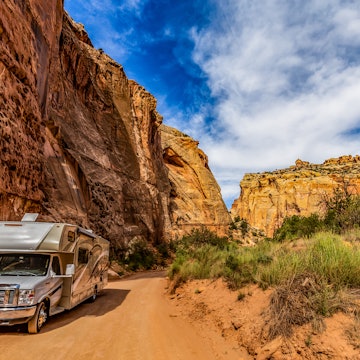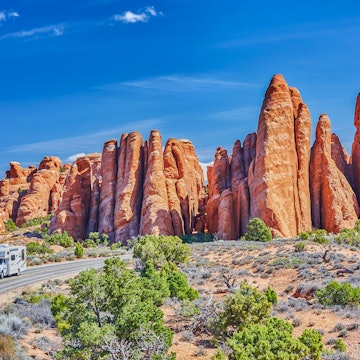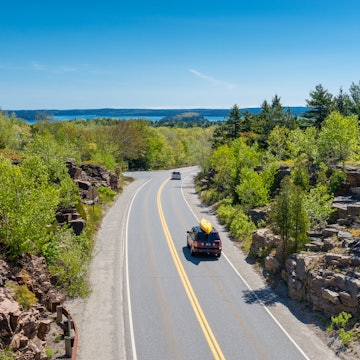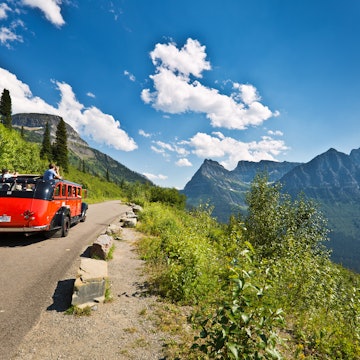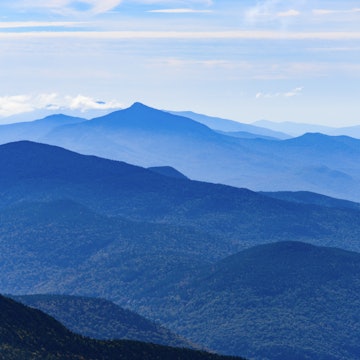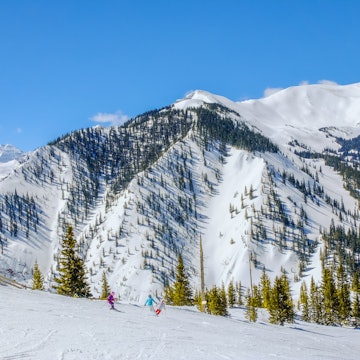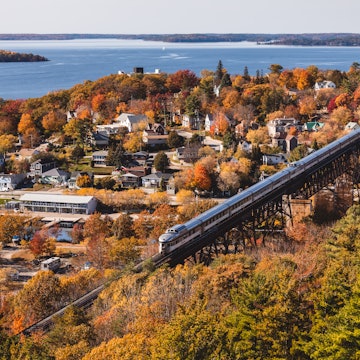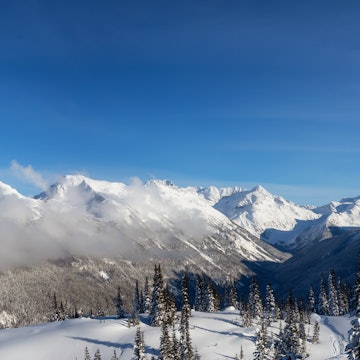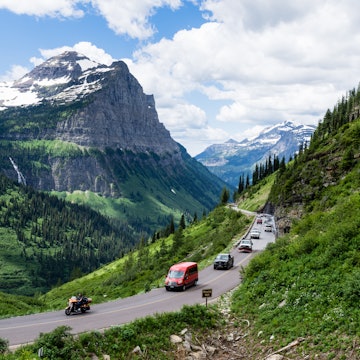
When I hear the telltale huffing of a bear near my tent, I have never felt more alone

May 26, 2023 • 3 min read

The author is well versed in the thrills – and dangers – of Canada’s wilderness © Beth Lewis
I traveled alone for a month through Canada when I was 21.
I hiked around the Rockies, took a train across the country, and kayaked and camped near Vancouver Island.
I fell in love with the country and its people – but mostly with its wild places. There is nothing more beautiful to me than a sunset behind the forested mountains of British Columbia. I learned just what wilderness was in Canada – the biggest, wildest and most exciting place I’d ever been.
And being alone, I could immerse myself in it completely.

********
I’m lying in my tent, a small three-man affair pitched on a rocky bluff at the edge of a forest. I’m alone in the middle of the Canadian wilderness. It’s night – but not quiet.
The sounds of small game fill the air. Insects chirp. A nightingale sings somewhere in the trees. Beyond that, I hear the gentle rush and retreat of the waters of the Johnstone Strait, the channel of ocean between Vancouver Island and the mainland. It’s a wild place of islands, uninhabited by anything but birds and seals – and a few bold humans and their rugged way of off-the-grid life. Dolphins chase boats through the water. Minke whales and orca surface among the choppy waves, disappearing before you can raise your camera.
I’m alone in the tent, tired from a day of solo hiking and about to drift off to sleep. I need the rest for another day exploring the woods tomorrow. My eyes close – then spring open again.
I don’t know what made the sound, but I soon hear it again: a clatter of rocks being overturned on the beach, a short walk from my tent. There is nobody else with me out here – and when I hear the telltale huffing of a bear foraging on the shore, I have never felt more alone.
I grab my bear spray, a must-have for anyone even contemplating even a stroll through a forest in Canada, let alone solo camping in one, and hold it to my chest. My hands shake, and I am suddenly all too aware of how thin the nylon tent is.
The huffing continues, gets closer. The rocks scrape under huge paws. The beach is behind me, down a steep slope – easy for a bear, of course.
I hear those big, heavy footsteps move away, then disappear altogether. It’s an hour before I feel safe enough to put down the bear spray, and another hour before I try to sleep again.
I did not manage it.
In the morning, I check the beach. On the slope, less than 100 yards from my tent, I find a bear’s footprint the size of my head.

********
When I arrived, I knew Canada was wild. But, naively, I didn’t expect that wildness to get so close.
Hiking and camping by yourself are dangerous pursuits, especially somewhere remote with bears and mountain lions in abundance. Despite that, there is something about the land, the boreal forests, and smell of spruce and pine in the Canadian wilderness that felt safe to me. I reasoned with myself that bear attacks were infrequent and unlikely to happen – yet remained vigilant, carrying bear spray, a whistle and life-saving knowledge. Thankfully, I was never attacked, despite coming very close to several bears, orca, eagles, elks...even a moose. During my time alone in such a wild place, I learned that if you embrace it, try not to fight against it, it will accept you.
I felt Canada’s forests and mountains had accepted me. It felt like home.
Available now, Children of the Sun, Beth’s fourth novel, follows a group living off the grid deep in the forests of the Adirondack Mountains.







